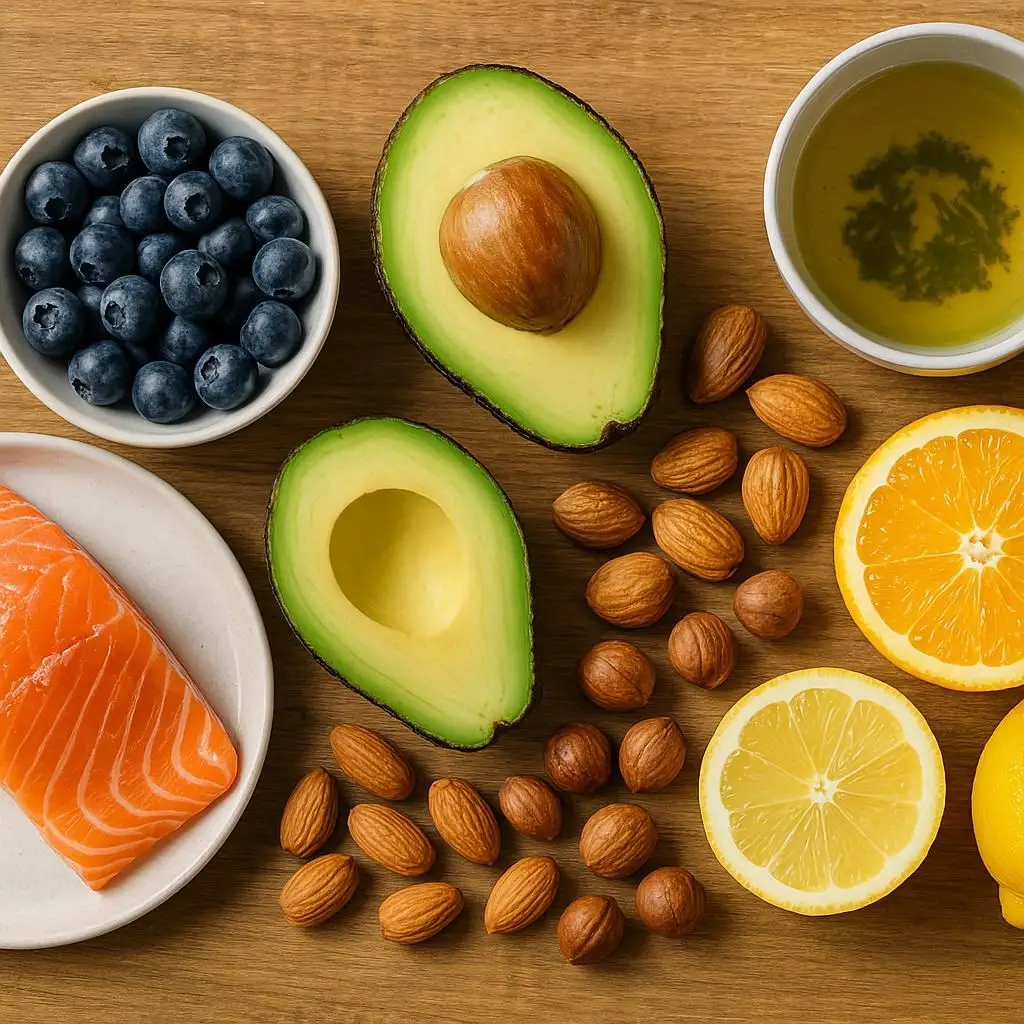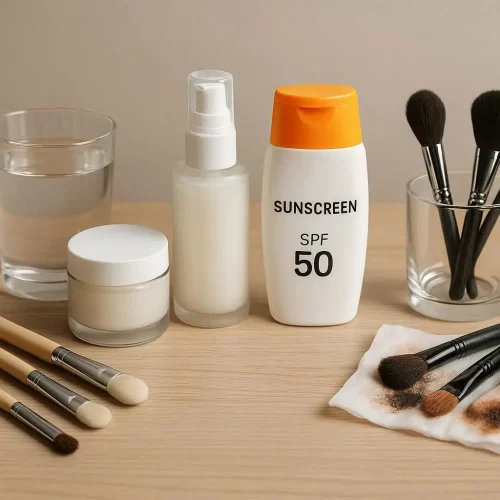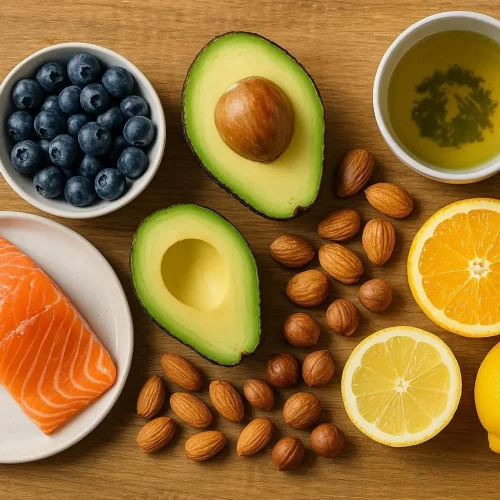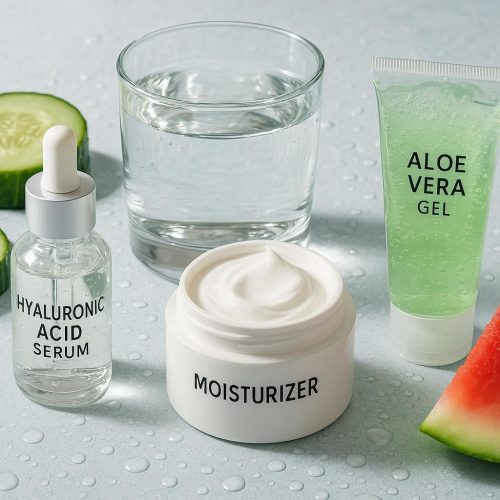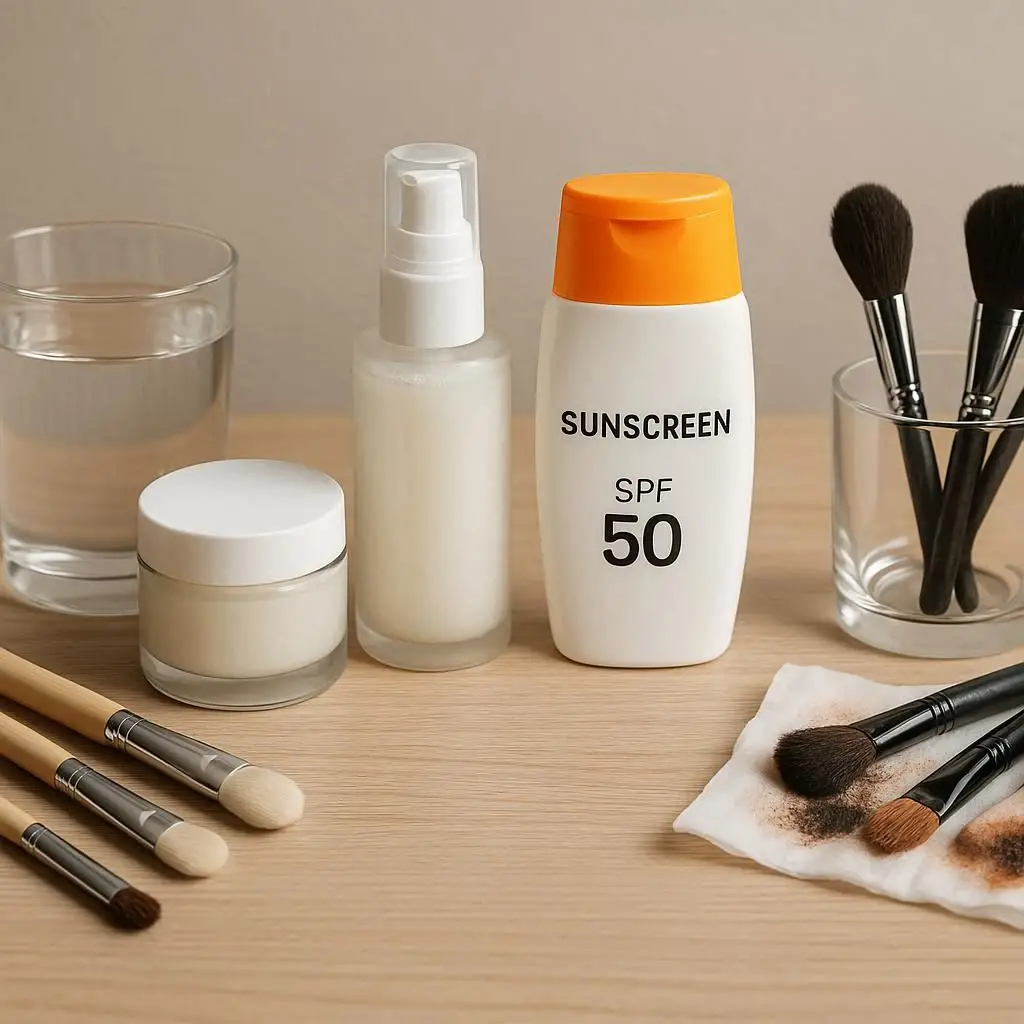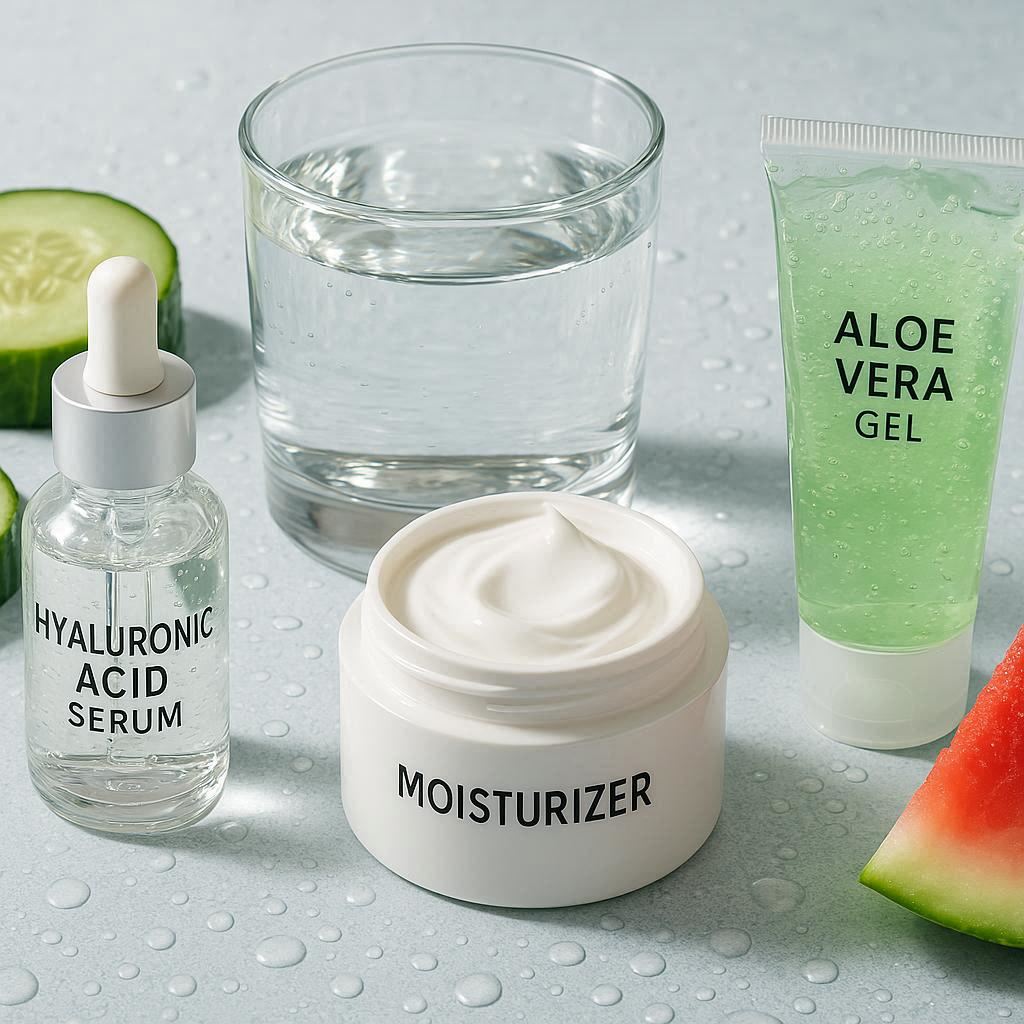Skincare isn’t only about the creams and serums you apply on your face. What you eat plays a huge role in how your skin looks and feels. A nutrient-rich diet can improve elasticity, hydration, and glow, while poor eating habits may lead to dullness, breakouts, or premature aging.
Let’s explore how diet influences skin health and which foods help you achieve radiant, healthy skin.
1. Hydration from Within
Water is vital for keeping skin plump and smooth. Dehydration shows up quickly on the skin as dryness, dullness, or fine lines.
- Aim for at least 6–8 glasses of water daily.
- Eat water-rich foods like cucumber, oranges, and watermelon.
- Limit alcohol and excessive caffeine, which can dehydrate skin.
2. Antioxidants for Protection
Free radicals from pollution, UV rays, and stress damage skin cells. Antioxidants fight them to keep skin youthful.
- Vitamin C (oranges, strawberries, bell peppers): Boosts collagen and brightens skin.
- Vitamin E (almonds, sunflower seeds): Protects against sun damage.
- Polyphenols (green tea, blueberries, dark chocolate): Reduce inflammation and slow aging.
3. Healthy Fats for Skin Elasticity
The skin’s natural barrier depends on healthy fats to stay strong and supple.
- Omega-3 fatty acids (salmon, walnuts, chia seeds): Reduce inflammation and dryness.
- Avocados: Provide vitamin E and healthy fats for smooth skin.
- Olive oil: Supports hydration and protection.
4. Protein for Repair and Collagen
Collagen, the protein that keeps skin firm, naturally decreases with age. Eating protein helps support production.
- Lean meats, fish, eggs, beans, and lentils provide amino acids for repair.
- Bone broth contains collagen that may support skin strength.
5. Minerals for Clear Skin
Minerals are often overlooked but play a big role in skin health.
- Zinc (pumpkin seeds, chickpeas): Helps fight acne and supports healing.
- Selenium (Brazil nuts): Protects against oxidative stress.
- Copper (nuts, seeds, shellfish): Supports collagen and elastin.
6. Foods to Limit for Better Skin
- Sugary foods and refined carbs: Can spike insulin, leading to breakouts.
- Processed foods with trans fats: May worsen inflammation.
- Excess salt: Causes water retention and puffiness.
7. Building a Skin-Friendly Diet
A balanced, skin-loving diet includes:
- A rainbow of fruits and vegetables
- Healthy fats from nuts, seeds, and fish
- Lean proteins for repair
- Plenty of water and herbal teas
Final Thoughts: Beauty from the Inside Out
Your skin is often a reflection of your overall health. By nourishing your body with the right foods and staying hydrated, you’ll see visible improvements in your complexion.
Remember: a consistent skincare routine works best when paired with a nutrient-rich diet that supports your skin from within.

